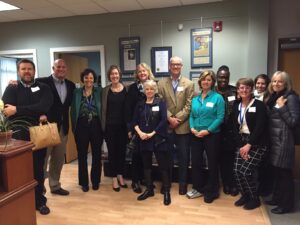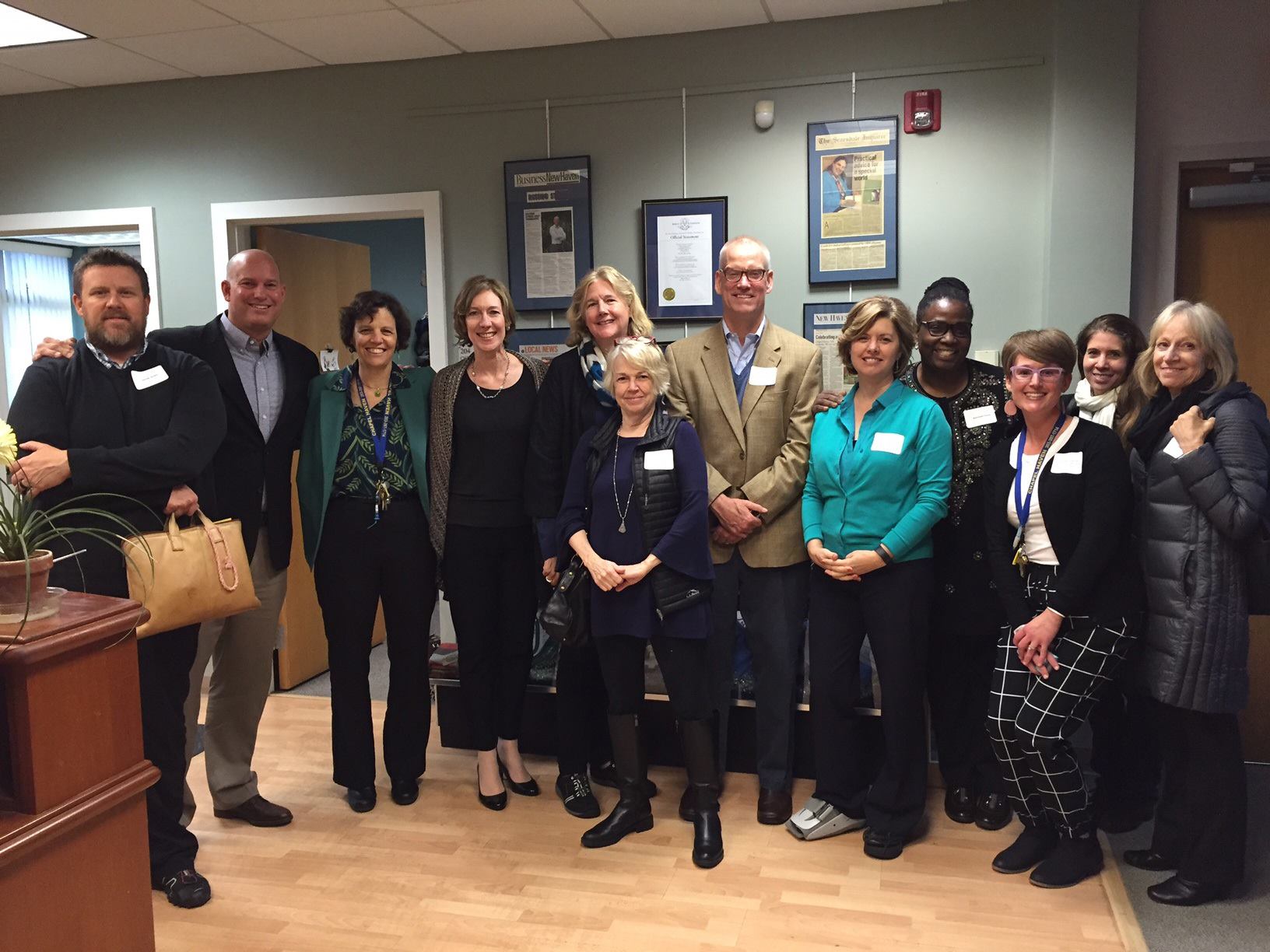 In May I joined a group of independent educational consultants and toured five schools/ programs in two days along the beautiful Connecticut shoreline. While each serve students with individualized needs they each do it in a very different way.
In May I joined a group of independent educational consultants and toured five schools/ programs in two days along the beautiful Connecticut shoreline. While each serve students with individualized needs they each do it in a very different way.
Our first stop was The Grove School in New Haven, Connecticut. This small co-educational therapeutic boarding school meandered across a country road. Three very engaging students guided us around campus showing us the academic buildings, health center, residence halls and even their farm animals complete with a chicken coop. The Grove School specializes in helping kids 7th through 12th grade with social, emotional and learning challenges that have impacted the quality of their lives. The Grove School helps each student understand themselves and their needs while meeting their academic achievements in a safe and supportive environment. They also offer a post-graduate/transition program “tailored to the student’s individual interests, capabilities, and goals. This includes opportunities to gain further education at local colleges, adult educational programs, trade and technical schools, as well as employment, and volunteering experiences.”
Next stop was Chapel Haven East. This residential program in New Haven, Connecticut supports adults 18-28 with “special challenges to live independent and productive lives.” They offer an Asperger’s Syndrome Adult Transition Program designed to be a transition to independent adult life. After meeting three of their clients, who were engaging in their own unique way, staff members led the tour through the resident hall where classes are also held such as Financial Management. We also were led through a house on campus where students are provided more independence. Chapel Haven East is embarking on a $41M capital campaign to completely reimagine their campus to fit within their architectural surroundings and make it look less institutional. It is in need of updating but with the vision of the program director after this project is complete it will become a model for other programs serving the autism spectrum population also including the aging population in an assistive living community.
Vista Life Innovations in Madison, Connecticut shared their unique way to serve their population of individuals with disabilities. Vista offers “community-based transition programming, employment services, advocacy services, arts programming, recreational programming, benefits counseling, assessment services and a summer program for prospective students.” The program helps each of their residents live independent lives each working in the community and learning life skills such as cooking for themselves and their roommates, cleaning their living spaces and managing their money. They offer homes and apartments within the community that may be family owned as well as a larger residence hall setting. Vista offers a broad range of services that includes transitional programming, assessment services, arts programming, day programming and much more. The community art program is offered for residents and connected to a gift shop.
The next day our first stop was to Oxford Academy in Westbrook, Connecticut. This one-to-one individualized learning program for young men was impressive. After visiting with a panel of six boys ranging from 9th to 12th grade it was easy to see who this school served and the benefits of one-to-one individualized learning. Oxford Academy is “A holistic curriculum and one-to-one teaching allow for students to take appropriate academic risks and build self-confidence.”While the school did not necessarily cater to students with learning challenges, the one-to-one environment can “find success through increased self-awareness and strategic effort. “We were invited to their community meeting and observed each student while they sat in their own study cubby. Student’s independence at Oxford allows them to walk or ride their bike into town during free time.
Our last stop was Franklin Academy, the little school on the hill that sprawled acres focusing exclusively on boys and girls in grades 8 – 12 who have been diagnosed with Nonverbal Learning Disabilities, Autism Spectrum Disorders, and Asperger’s Syndrome. Their program “combines four integral components: Academics, Social/Emotional Understanding, Executive Functioning, and Self Advocacy/Self Reliance.” After viewing the residence hall, classrooms, the recreation hall and a community meeting we were treated to a lunch with students as well as a panel discussion with the students. The students we met at Franklin were very aware of themselves and how their diagnosis affects them in their studies and in life. The FLI program is offered for seniors and postgraduate students and supports them in their growth toward independence, responsibility, and self-advocacy leading to skills necessary for optimal college success.
It was a treat to visit these very diverse schools and programs each exuding the flavor of their New England surroundings while serving the individual needs of their students. Thank you also to our hosts for making this not only an informative trip but a fun one as well, lobster bib and all!
